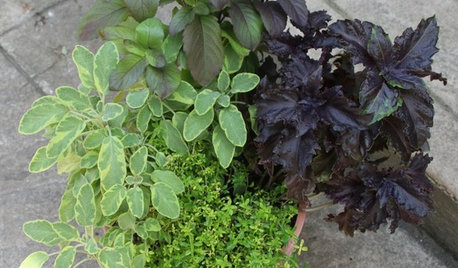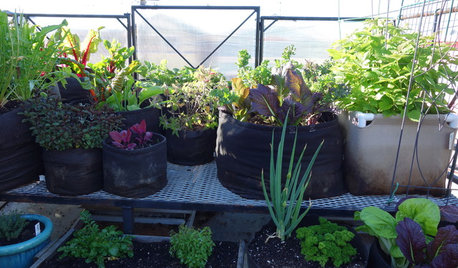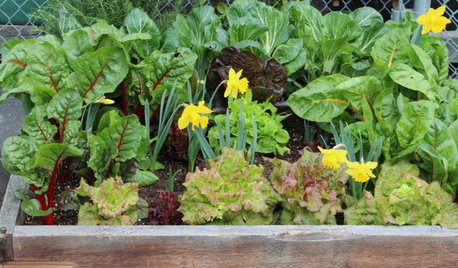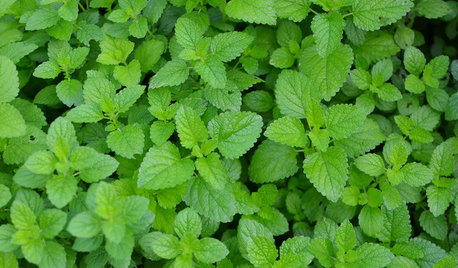volunteer seedlings
janice__indiana5
9 years ago
Related Stories

CONTAINER GARDENS8 Easy Container Plants to Grow From Seed
Get beautiful blooms and herbs in summer by starting these choice garden picks from seed in spring
Full Story
LANDSCAPE DESIGNWhen Less Is Really More in Your Garden
8 ways you can make a powerful garden statement by embracing simplicity and surroundings
Full Story
GARDENING GUIDESCentral Plains Gardener's November Checklist
Mulching, seeding, feeding — several small tasks to ensure a winter of activity, and a good spring start.
Full Story
NATIVE PLANTS5 Ways to Keep Your Native Plant Garden Looking Good All Year
It’s all about planning ahead, using sustainable practices and accepting plants as living organisms
Full Story
FARM YOUR YARDAn Urban Greenhouse Overflows With Edibles
Making meals just means stepping into the yard for a San Francisco couple who revamped an old orchid house
Full Story
FARM YOUR YARDGrow a Kitchen Garden in 16 Square Feet
Got a sunny 4-by-4 space? You can make meals more interesting with your own vegetables and herbs
Full Story
EDIBLE GARDENS12 Essential Herbs for Your Edible Garden
Make home cooking and drinks even better with herbs plucked from your own backyard or windowsill pot
Full Story
FALL GARDENINGWhy Fall Is the Best Time for Planting
Spring is overrated for planting. Starting plants in autumn has advantages for both garden and gardener
Full Story
GARDENING FOR BUTTERFLIESBe a Butterfly Savior — Garden for the Monarchs
Keep hope, beauty and kindness alive in the landscape by providing a refuge for these threatened enchanters
Full Story
FRONT YARD IDEASBefore and After: Front Lawn to Prairie Garden
How they did it: Homeowners create a plan, stick to it and keep the neighbors (and wildlife) in mind
Full StorySponsored
More Discussions






labradors_gw
janice__indiana5Original Author
Related Professionals
Ashburn Landscape Architects & Landscape Designers · Harvey Landscape Architects & Landscape Designers · Cary Landscape Contractors · Fountain Valley Landscape Contractors · Kettering Landscape Contractors · Lake Worth Landscape Contractors · Milford Landscape Contractors · San Rafael Landscape Contractors · Ames General Contractors · Manalapan General Contractors · Rolla General Contractors · Titusville General Contractors · Villa Park General Contractors · Crestline Decks, Patios & Outdoor Enclosures · Lansdale Decks, Patios & Outdoor Enclosureslabradors_gw
digdirt2
seysonn
labradors_gw
digdirt2
seysonn
labradors_gw
carolyn137
woodyswife